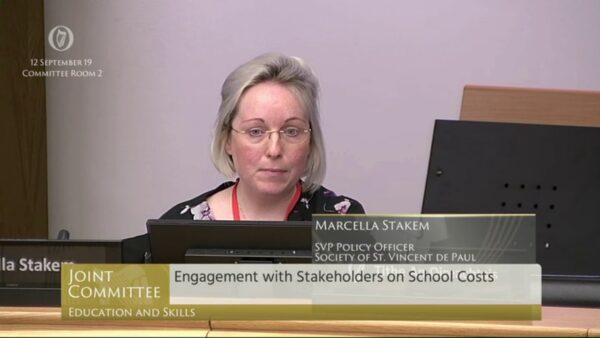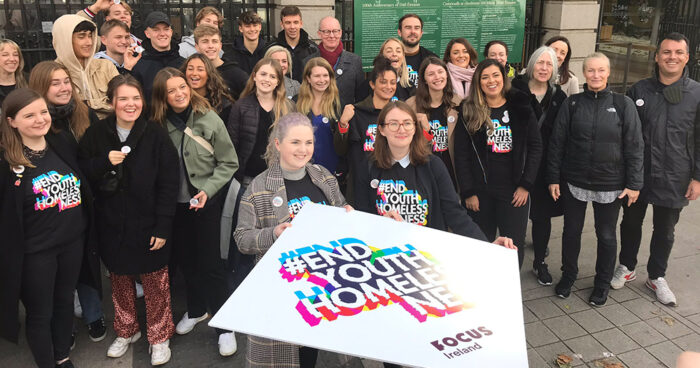Universities are currently battling to put out more fires than you can shake a stick at. They’re attempting to put in place a workable model for online teaching, considering the implications of re-opening their accommodation in a pandemic, and facing down the barrel of financial meltdown.
These are all obvious, and highly visible, problems. But among students, a different kind of issue, harder to measure, is becoming worryingly prevalent.
“Hidden homelessness” is a huge issue for students across the country. But it’s exceptionally difficult to tackle, particularly when there’s little access to accurate information on it.
Despite widespread awareness of the extraordinary living expenses for college students, a misconstrued understanding of the nature of homelessness means many students believe homelessness is only homelessness when it involves park benches and shelters.
If our knowledge and our understanding of poverty and homelessness is lacking, it is very difficult to have a proper understanding of how we can solve it
But homelessness manifests in different ways, and Ireland’s slowness to recognise this has left an unquantified gap in the homeless figures. It’s also an uncomfortable fact that students make up a portion of these numbers – and many believe their universities aren’t doing enough to help.
Stories of students experiencing insecure living conditions are largely shared anecdotally – the experiences of these students are often labelled “couch-surfing”, and not always taken seriously.
“Couch-surfing is one of the main manifestations of student homelessness”, says Conall Keane, the president of Trinity’s VDP society. These students, he says, are a “blind spot” for homelessness services and students’ unions across the country – it’s often hard to establish who’s living in what situation. But it’s important to find out more, he adds – housing status is closely tied to academic success and mental health, and with insufficient support, students in uncertain living conditions are left isolated and vulnerable.
The lack of statistics makes it very difficult for student support services to respond to the situation. For adequate mitigation measures and proactive resources to be provided, universities need comprehensive information on the breadth of the problem and the various challenges – medical, academic and financial – facing those who suffer as a result of it.

“Hidden homelessness is a real concern for us”, says Marcella Stakem, a social policy development officer with St Vincent de Paul, “because that is the area that we’re seeing so much through home visitation”. With over 11,500 members, St Vincent de Paul is seeking to determine the number of people affected by this issue. The charity’s biggest challenge is related to “how Ireland classes people as being homeless”, Stakem says, and the fact that it’s “at variance with other European countries”.
Other European countries comply with the ETHOS Type classification, which outlines six operational categories, including one that recognises people living temporarily with friends or family.
Meanwhile, Irish homelessness figures are calculated on the basis of two categories: those in emergency accommodation, and those in homeless accommodation such as hostels. “For us, that’s a real concern, because we feel that the data relating to homelessness is insufficient”, Stakem says.
“If our knowledge and our understanding of poverty and homelessness is lacking”, Stakem points out, “it is very difficult to have a proper understanding of how we can solve homelessness”.
In the current system, then, it’s not clear where this information is going to come from – and it’s not helped by the stigma around homelessness.
We feel that the data relating to homelessness is insufficient
Naoise Crowley is the welfare officer of University College Cork Students’ Union (UCCSU). He says the “evident, substantial stigma around financial hardship and homelessness” makes it doubly difficult to get accurate figures.
According to Crowley, homeless students often avoid identifying themselves to their students’ union or their college’s support services, while some simply refuse to classify their situation as homelessness at all.
But if the problem seems entrenched, it’s not for lack of goodwill from students. In 2019, Focus Ireland set up a campaign – End Youth Homelessness – aimed at tackling the issue. “Within a few months, we amassed over 10,000 signatures and we got such great support from students”, says Conor Culkin, the communications officer of Focus Ireland.
The campaign called on the government to provide targeted support for young people experiencing homelessness and to introduce homelessness prevention initiatives – and it also underlined the measures needed to help young LGBTQ+ people, who are disproportionately affected by homelessness.
During the campaign, Culkin says, Focus Ireland saw a remarkable demonstration of commitment from students and young people involved. Young people’s willingness to mobilise and make change, he says, “is a real reason for hope and optimism”.
In a climate of anxiety and separation, keeping alight the enthusiasm of students to induce political change presents a challenge. Under shifting public pressure, the housing crisis no longer dominates the government’s agenda – but Culkin warns that we must not lose sight of the most acutely affected homeless students during the pandemic.
It shouldn’t take a crisis like this to say that people deserve better. People deserve to have a secure, safe home to go into and close the door
Many homeless students have been incapable of following what for many of us is a fundamental and undisputed guideline: stay home. Social distancing and hygiene advice just aren’t feasible for many without their own home.
Stakem says that for homeless people, living situations have changed drastically as a result of the pandemic, including for students living unofficially in unstable situations with friends: “COVID-19 has really put a sharp edge on the problem of homelessness, and also within the precarity and insecurity of housing that people are in.”
Contingency planning will be vital for the future, Stakem insists, “so that if we’re ever faced with such a situation again that it’s not going to be the most vulnerable that are going to bear the biggest brunt of this situation”.
The pandemic has prompted many to reflect on the inequalities that underpin Irish society. What’s important for students, according to Crowley, is that we examine how individual students and their unions have been responding to the proposed rent increases on campus accommodation across the country.
This requires a reassessment of what universities owe their students.

Crowley says lobbying for fair rents is a vital first step. “Student accommodation should not be used as a revenue source for a university”, he says. “It should be provided at cost and any surplus that is left over at the end of the year be used to decrease rents for the next year or improve facilities.”
The economic impact of the coronavirus is expected to widen the opportunity gap for students wishing to go to college. These disparities, Crowley insists, must be addressed by sensitive and meaningful mitigation measures – and soon. “I don’t think just the simple [SUSI] grant will be sufficient, and I do think there will have to be some sort of student contingency payment to help those who don’t have employment when the economy is back up and running.”
But students’ unions have advocated for a recalibration of grants for years, to no avail – the threshold has not changed since 2012. Insufficient financial student support is emblematic of a wider funding deficit in the sector, so it seems universities will have to step in and plug the gap if the situation is to be addressed.
In a pandemic, this will be more difficult than ever, as colleges reprioritise when it comes to allocating funding. But greater statistical analysis will be a crucial first step in tackling an issue that’s more urgent than ever.
“It shouldn’t take a crisis like this to say that people deserve better”, says Stakem. “People deserve to have a secure, safe home to go into and close the door.”







